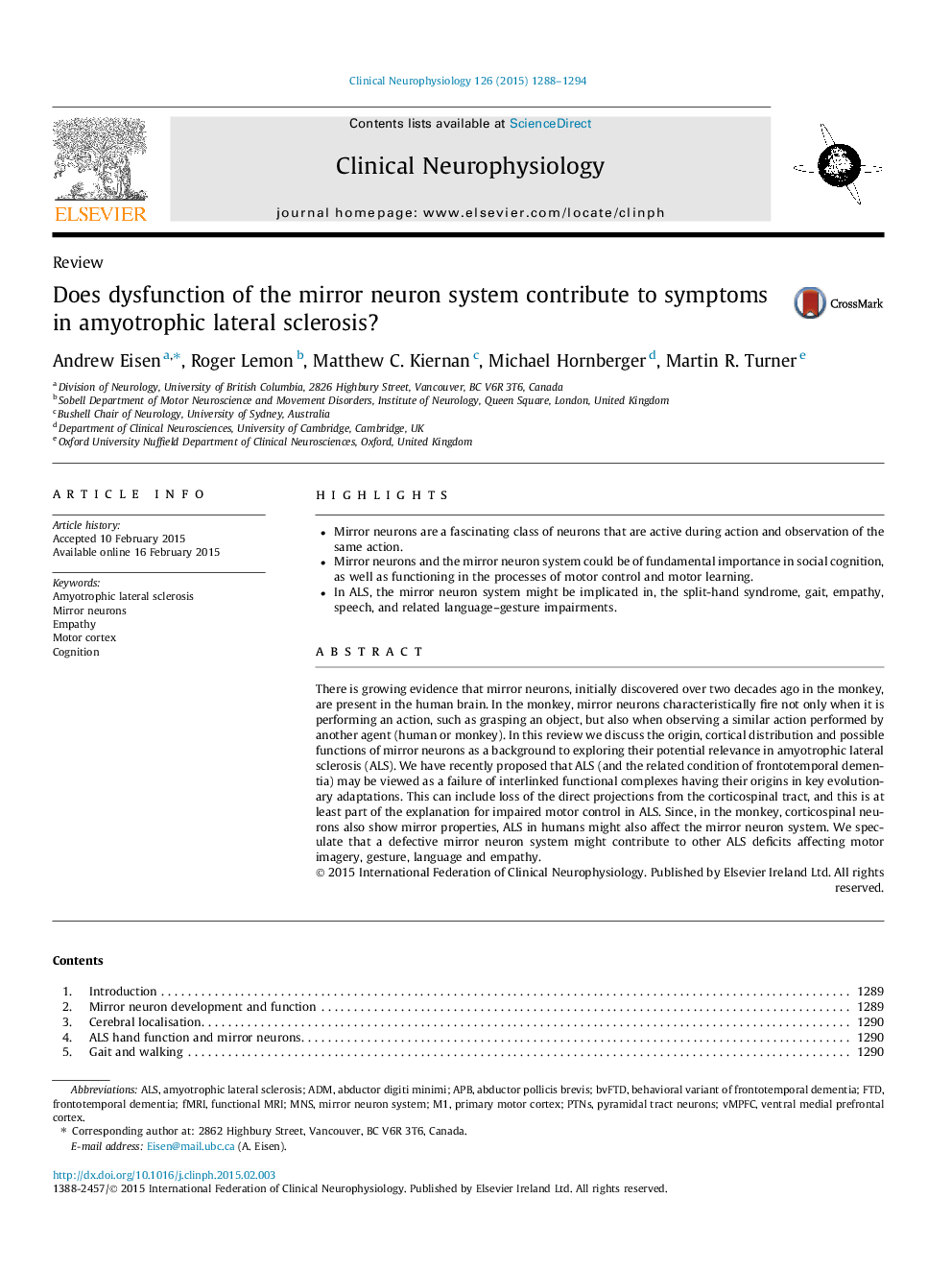| Article ID | Journal | Published Year | Pages | File Type |
|---|---|---|---|---|
| 6007715 | Clinical Neurophysiology | 2015 | 7 Pages |
â¢Mirror neurons are a fascinating class of neurons that are active during action and observation of the same action.â¢Mirror neurons and the mirror neuron system could be of fundamental importance in social cognition, as well as functioning in the processes of motor control and motor learning.â¢In ALS, the mirror neuron system might be implicated in, the split-hand syndrome, gait, empathy, speech, and related language-gesture impairments.
There is growing evidence that mirror neurons, initially discovered over two decades ago in the monkey, are present in the human brain. In the monkey, mirror neurons characteristically fire not only when it is performing an action, such as grasping an object, but also when observing a similar action performed by another agent (human or monkey). In this review we discuss the origin, cortical distribution and possible functions of mirror neurons as a background to exploring their potential relevance in amyotrophic lateral sclerosis (ALS). We have recently proposed that ALS (and the related condition of frontotemporal dementia) may be viewed as a failure of interlinked functional complexes having their origins in key evolutionary adaptations. This can include loss of the direct projections from the corticospinal tract, and this is at least part of the explanation for impaired motor control in ALS. Since, in the monkey, corticospinal neurons also show mirror properties, ALS in humans might also affect the mirror neuron system. We speculate that a defective mirror neuron system might contribute to other ALS deficits affecting motor imagery, gesture, language and empathy.
